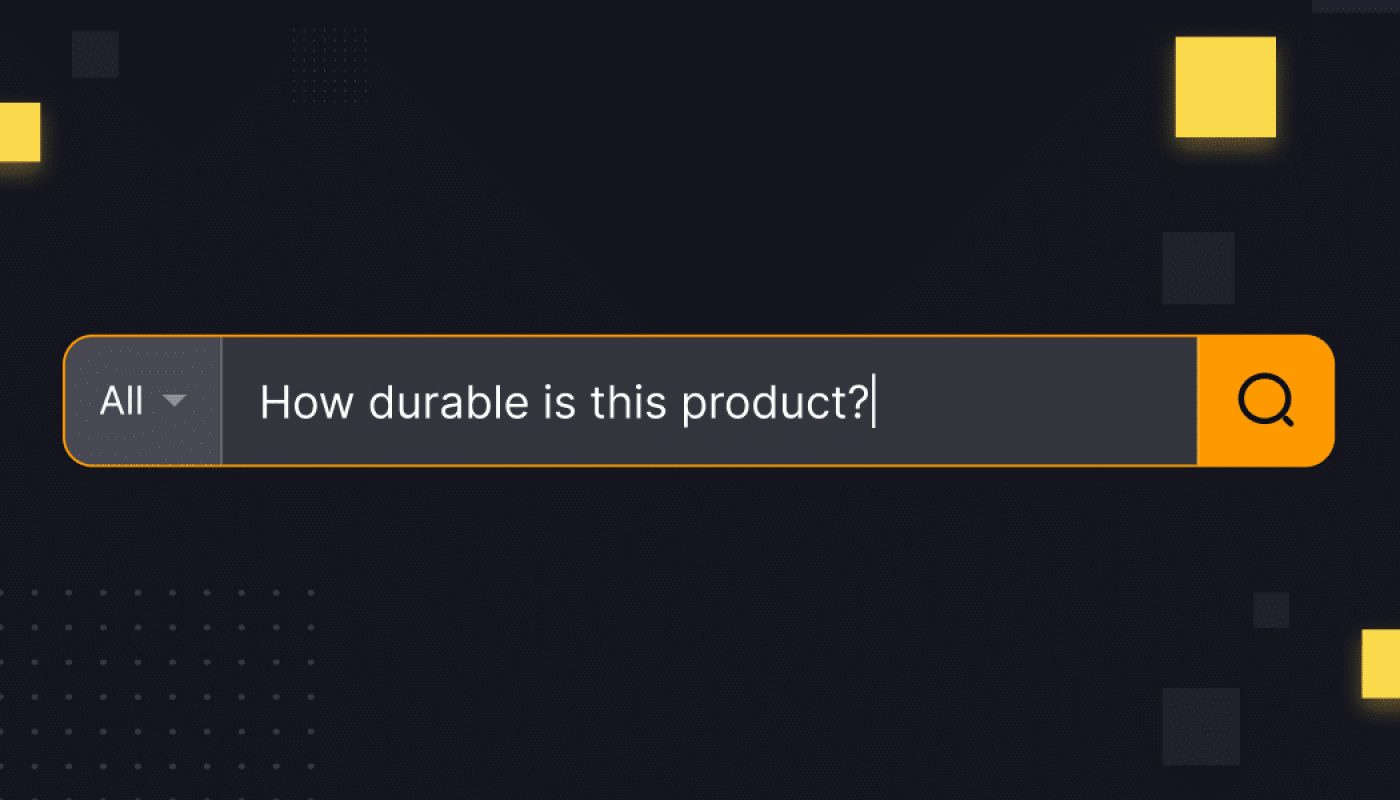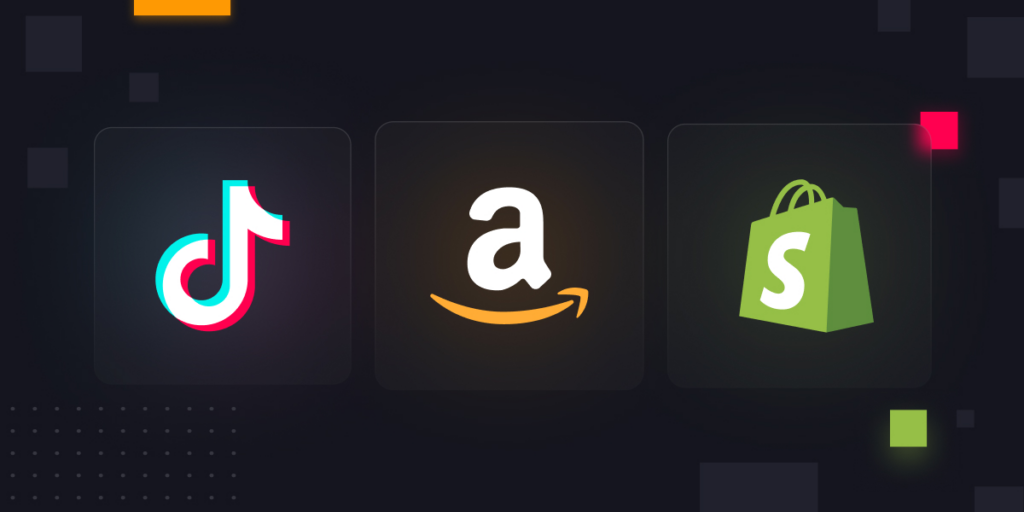These days, one of the most important data points every brand needs to grasp is this: What questions are your shoppers asking about you?
Basically, when shoppers stumble across your product for the first time, what do they most often want to know?
Are there certain customizations they always ask about, for instance? Questions about the materials, the design, the longevity of your products?
Or, more importantly, what are the features they want to know about? Are they often asking, “Does this coffee machine have a cold brew component in it?”
Customer questions are one of the most essential data sources for brands, and many of us are only just beginning to learn how to tap into them.
Assembling a collection of the most common questions your shoppers are asking—a FAQ of sorts—has always been important. It lets you identify places where you might want to refresh your content or new products you might want to launch.
But as more shoppers begin their product journeys not in a search bar but with an AI agent, having a handle on these questions is going to be the key to standing out.
Why are shopper questions so important in the age of AI?
AI shopping assistants are gaining more traction and driving a lot more traffic to product pages.
More and more, these AI tools are how shoppers are discovering products and learning about features.
If you get a handle on which questions shoppers tend to ask their AI agents, you can not only make your product more discoverable by AI agents. You can also get deeper insight into the most important aspects of your brand.
Let’s return to the earlier example. Say, for instance, that customers are repeatedly asking AI agents whether or not your coffee machines have a cold brew component.
If your products do have a cold brew component, that tells you this might be one of your key differentiators against your competitors.
Highlight that fact in your content. Maybe even add a Q&A section into your Amazon products description that includes a question and answer about your cold brew component.
You know your shoppers are asking about AI this—you should make it prominent, so that the AI agent keeps promoting your product back to them.
If your products don’t have a cold brew component, maybe you want to highlight another differentiating feature higher up in your content. Or maybe, as you look at your product roadmap, it might be worth considering launching a future product with this component.
Even outside of differentiating features, knowing the common questions your shoppers ask just lets you get a lot sharper in your content.
If your shoppers want to know about your materials, that’s a sign that you should make this a more visible part of your content. Same if they keep asking about the durability of your product.
Basically, you can use these questions to reverse-engineer your content. Look at the question list, and make sure you are addressing directly the facts shoppers most seem to want to know about your brand.
How do you figure out which questions your shoppers are asking?
The good thing is it’s not as hard as it once was to compile a list of common questions asked about your product.
Shopify in particular is leading the charge on this. In the new Shopify app Knowledge Base, Shopify will display the most common questions that shoppers ask about you in common AI tools like ChatGPT.
From the Shopify dashboard, you can see what customers really want to know about you. You can also get a preview of how AI agents generally answer those questions.
These questions are probably transferable to Amazon, too. If shoppers frequently ask one question in ChatGPT, there’s no reason to think they don’t also ask it in Amazon’s Rufus.
The data you get from Shopify, in other words, can probably be applied widely.
Beyond that, you have to get a little more creative.
Let’s say you want to know which questions Amazon shoppers are asking Rufus about you. Unfortunately, these questions aren’t filtered into a centralized database the way it is in Shopify. But you can still see a lot of the questions by doing a bit of legwork.
For instance, when a shopper is searching for a specific type of product, Rufus automatically generates a set of possible questions about it.
A sofa, for instance, might generate a question suggestion like “Does it come with a removable cover?”
As a brand, you should have a finger of what those automatic questions Rufus asks about your product and your competitors’ products. Then, weave the answers into your content, so you can stand out when shoppers do ask those questions.
Are there other advantages of knowing customer questions?
These FAQs also can help you address key gaps in your content. With the list of questions at your fingertips, you can cross-reference against the content you currently have out there.
Your top questions probably are not being well reflected in your existing content. That’s why so many shoppers are asking about them. Our advice is to integrate, as much as you can, the answers to these questions into your product descriptions.
Soon, all of your marketing is going to stem from these internal FAQs.




